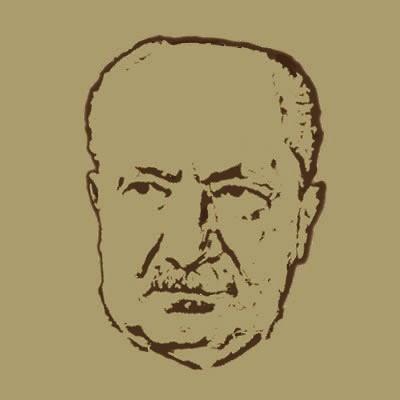A lecture of The Keeper of Sheep from the “poetic speech” of Being and Time
Main Article Content
Abstract
The §34 of Being and Time points to “poetic speech” as an explicit way of communicating existential possibilities, manifesting Dasein in its singularity. Language, whose foundation is “Discourse” (Rede), articulates, therefore, “Attunement” (Befindlichkeit) and “Understanding” (Verstehen). That which is manifested by language is not, at first, a concept -consequence of a reflexive exercise- but Meaning -consequence of a factual experience. Thereby, the “poetic speech” characterizes the hermeneutic way of articulation and construction of the language properly attuned. This allows us to read Alberto Caeiro’s The Keeper of Sheep -Fernando Pessoa’s heteronym- from the “poetic speech”, realizing that it is articulates the Attunement, the Understanding and the Discourse.
Downloads
Article Details

This work is licensed under a Creative Commons Attribution-NonCommercial-NoDerivatives 4.0 International License.
Authors retain ownership of copyright and reproduction rights.
Authors may make other independent and additional contractual arrangements for non-exclusive distribution of the version of the article published in this journal (e.g., inclusion in an institutional repository or publication in a book) as long as they clearly indicate that the work was first published in this journal.
Authors are allowed and encouraged to publish their work on the Internet (e.g. on institutional or personal websites) after the review and publication process, as it may lead to productive exchanges and to a wider and faster dissemination of the published work.
References
Candido, G. B. “Caeiro: uma vacina contra estupidez dos inteligentes”. Ipseitas, v. 3, n. 2, 2017, pp. 41-59.
Carneiro, G. L. A poesia de Alberto Caeiro à luz da filosofia de Martin Heidegger. Belo Horizonte, PUC-Minas, 2010.
Carneiro, C. M. F. Alberto Caeiro e a fenomenologia. Lisboa, Universidade Nova de Lisboa, 2011.
Ferrer, D. “Fernando Pessoa: aproximação dialética e fenomenológica”. Ipseitas, v. 3, n.2, 2017, pp. 21-40.
Fogel, G. O desaprendizado do símbolo: ou da experiência da linguagem. Rio de Janeiro, Mauad X, 2017.
Heidegger, M. El ser y el tiempo. México D.F, Fondo de Cultura Económica, 1993. HeideggeR, M. Introducción a la fenomenología de la religión. Madrid, Siruela, 2005. HeideggeR, M. Ontología (hermenéutica de la facticidad). Madrid, Alianza Editorial, 2000.
Hühne, L. M. Fernando Pessoa e Martin Heidegger: o poetar pensante. Rio de Janeiro, Uapê, 1994.
Kirchner, R. “A caminho do pensamento e da poesia”. Theoria-Revista de filosofia, v. 1, n. 1, 2009, pp. 11-35.
Lara, F. El ser-en como tal (§28-38). En RodRíguez, R. (ed.). Ser y tiempo de Martin Heidegger: un comentario fenomenológico. Madrid, Tecnos, 2015, pp. 145-166.
Nunes, B. Hermenêutica e poesia: o pensamento poético. Belo Horizonte, UFMG, 1999. Pessoa, F. Antología de Álvaro de Campos. Madrid, Editora Nacional, 1978.
Pessoa, F. Páginas íntimas e de auto-interpretação. Lisboa, Ática, 1966. Pessoa, F. Poemas de Alberto Caeiro. Madrid, Visor, 1984.
PiepeR, F. “Experiência religiosa e linguagem. Considerações hermenêuticas”. Síntese- Revista de Filosofia, Belo Horizonte, v. 38, n. 122, 2011, pp. 365-380.
Rodríguez, R. Fenómeno e interpretación: ensayos de fenomenología hermenéutica. Madrid, Tecnos, 2015.
Rodríguez, R. Hermenéutica y subjetividad. Madrid, Trotta, 1993.
Rodríguez, R. “La percepción como interpretación”. Studia heideggeriana: Lógos-Lógica- Lenguaje, Buenos Aires, v. II, 2012, pp. 179-212.
Samonà, L. “La cuestión del lenguaje en Heidegger”. En RodRíguez, R. (ed.). Guía Comares de Heidegger. Granada, Comares, 2018. pp. 289-311.
Silva, L. O. O materialismo idealista de Fernando Pessoa. Lisboa, Clássica, 1985.
Silva, R. S. “A linguagem em Ser e tempo: uma perspectiva crítica”. En BORGES-DUARTE, I.; HENRIQUES, F.; DIAS, I. M. Heidegger, linguagem e tradução. Lisboa, Centro de filosofia da Universidade de Lisboa, 2002, pp. 379-387.
Vaz, H. C. L. Escritos de filosofia I: problemas de fronteira. São Paulo, Loyola, 2014.

